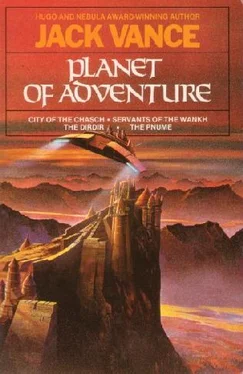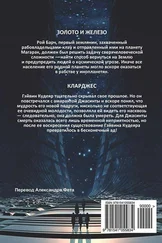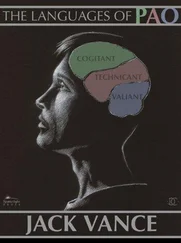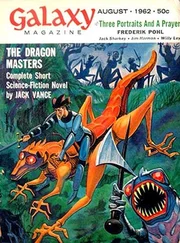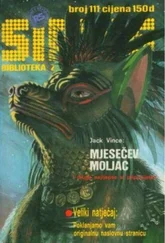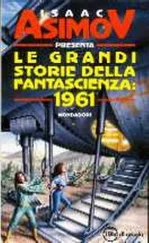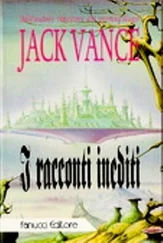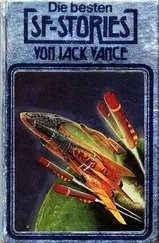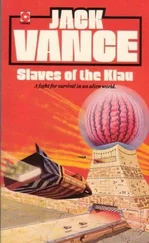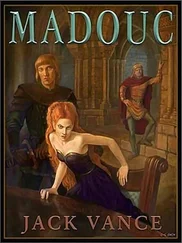Jack Vance - Planet of Adventure
Здесь есть возможность читать онлайн «Jack Vance - Planet of Adventure» весь текст электронной книги совершенно бесплатно (целиком полную версию без сокращений). В некоторых случаях можно слушать аудио, скачать через торрент в формате fb2 и присутствует краткое содержание. Жанр: Фантастика и фэнтези, на английском языке. Описание произведения, (предисловие) а так же отзывы посетителей доступны на портале библиотеки ЛибКат.
- Название:Planet of Adventure
- Автор:
- Жанр:
- Год:неизвестен
- ISBN:нет данных
- Рейтинг книги:4 / 5. Голосов: 1
-
Избранное:Добавить в избранное
- Отзывы:
-
Ваша оценка:
- 80
- 1
- 2
- 3
- 4
- 5
Planet of Adventure: краткое содержание, описание и аннотация
Предлагаем к чтению аннотацию, описание, краткое содержание или предисловие (зависит от того, что написал сам автор книги «Planet of Adventure»). Если вы не нашли необходимую информацию о книге — напишите в комментариях, мы постараемся отыскать её.
Planet of Adventure — читать онлайн бесплатно полную книгу (весь текст) целиком
Ниже представлен текст книги, разбитый по страницам. Система сохранения места последней прочитанной страницы, позволяет с удобством читать онлайн бесплатно книгу «Planet of Adventure», без необходимости каждый раз заново искать на чём Вы остановились. Поставьте закладку, и сможете в любой момент перейти на страницу, на которой закончили чтение.
Интервал:
Закладка:
"They fare occasionally to Sibol," said Anacho. "There is no great traffic. Long ago when the Expansionists held sway Dirdir ships went out to many worlds. No longer. The Dirdir are quiescent. They would like to force the Wankh off of Tschai and slaughter the Blue Chasch, but they do not marshal their energies. It is somehow frightening. They are a terrible and active race and cannot lie quiet too long. One of these days they must explode, and go forth again."
"What of the Pnume?" Reith asked.
"There is no established pattern.." Anacho pointed to the palisades behind Hei.
"Through your electric telescope you might see Pnume warehouses, where they store metals for trade with the Dirdir. Pnumekin occasionally come out into Sivishe for one purpose or another. There are tunnels through all the hills and out into the country beyond. The Pnume observe every move the Dirdir make. They never come forth, however, for fear of the Dirdir, who kill them for vermin. On the other hand a Dirdir who goes hunting alone may never return. The Pnume have taken him down into their tunnels, so it is believed."
"It could only happen on Tschai," said Reith. "The folk trade in mutual detestation and kill each other on sight."
Anacho gave a sour snort. "I see nothing remarkable in the fact. The trading conduces to mutual profit; the killing gratifies the mutual detestation. The institutions have no common ground."
"What of the Pnumekin? Do the Dirdir or Dirdirmen molest them?"
"Not in Sivishe. A truce is observed. Elsewhere they too are destroyed, though rarely do they show themselves. There are, after all, relatively few Pnumekin, who must be the strangest and most remarkable folk of Tschai ... We must depart before we attract the attention of the yard police."
"Too late," said Traz in a dreary voice. "We are being watched at this moment."
"By whom?"
"Behind us, along the way, stand two men. One wears a brown jacket and a loose black hat; the other a dark blue cloak and the head-shroud."
Anacho glanced along the avenue. "They are not police-at least not yard guards."
The three turned back to the dingy jumble of concrete which marked the center of Sivishe. Carina 4269, glowing through a high layer of haze, cast cool brown light over the landscape. Full in the light came the two men, and something in their noiseless gait sent a pang of panic through Reith. "Who can they be?" he muttered.
"I don't know." Anacho turned a quick glance over his shoulder, but the men were no more than silhouettes against the light. "I don't think they are Dirdirmen.
We have been in contact with Aila Woudiver; it may be that he is watched.
Woudiver's own men conceivably. Or a criminal gang? After all, we might have been noticed coming down in the sky-car, or taking sequins to the vaults-Worse!
Our descriptions from Maust may have been circulated. We are not undistinctive."
Reith said grimly, "We'll have to find out, one way or another. Notice where the street passes closes to that broken building-"
"Suitable."
The three strolled past a crumbling buttress of concrete, then, once out of sight, jumped to the side and waited. The two men came running past on long noiseless strides. As they passed the buttress, Reith tackled one, Anacho and Traz seized the other. With a sudden exclamation Anacho and Traz released their grip. For an instant Reith sensed a curious rancid odor, like camphor and sour milk. Then a bone-racking shudder of electricity sent him lurching back. He gave a croak of dismay. The two men fled.
"I saw them," said Anacho in a subdued voice. "They were Pnumekin, or perhaps Gzhindra. Did they wear boots? Pnumekin walk with bare feet."
Reith went to look after the pair, but in some miraculous fashion they had disappeared. "What are Gzhindra?"
"Pnumekin outcasts."
The three trudged back through the dank streets of Sivishe.
Anacho presently said, "It might have been worse."
"But why should Pnumekin follow us?"
Traz muttered, "They have been following us since we departed Settra. And maybe before."
"The Pnume think strange thoughts," said Anacho in a heavy voice. "Their actions seldom admit of sensible explanation; they are the stuff of Tschai itself."
CHAPTER TWELVE
THE THREE SAT at a table outside the Ancient Realm Inn, sipping soft wine and watching the passing folk of Sivishe. Music was the key to a people's genius, thought Reith. This morning, passing a tavern, he had listened to the music of Sivishe. The orchestra consisted of four instruments. The first was a bronze box studded with vellum-wrapped cones which when rubbed produced a sound like a cornet played at the lowest possible range. The second, a vertical wooden tube a foot in diameter, with twelve strings across twelve slots, emitted resonant twanging arpeggios. The third, a battery of forty-two drums, contributed a complex muffled rhythm. The fourth, a wooden slidehorn, bleated, honked and produced wonderful squealing glissandos as well.
The music performed by the ensemble seemed to Reith peculiarly simple and limited: a repetition of simple melody, played with only the smallest variation.
A few folk danced: men and women, face to face, hands at sides, hopping carefully from one leg to the other. Dull! thought Reith. Yet, at the end of the tune the couples separated with expressions of triumph, and recommenced their exertions as soon as the music started again. As minutes passed, Reith began to sense complexities, almost imperceptible variations. Like the rancid black sauce which drowned the food, the music required an intensive effort even to ingest; appreciation and pleasure must remain forever beyond the reach of a stranger.
Perhaps, thought Reith, these almost-unheard quavers and hesitations were the elements of virtuosity; perhaps the folk of Sivishe enjoyed hints and suggestions, fugitive lusters, almost unnoticeable inflections: their reaction to the Dirdir city so close at hand.
No less an index to the thought-processes of a people was their religion. The Dirdir, so Reith knew from conversations with Anacho, were irreligious. The Dirdirmen, to the contrary, had evolved an elaborate theology, based on a creation myth which derived Man and Dirdir from a single primordial egg. The submen of Sivishe patronized a dozen different temples. The observances, as far as Reith could see, followed the more or less universal pattern-abasement, followed by a request for favors, as often as not foreknowledge regarding the outcome of the daily races. Certain cults had refined and complicated their doctrines; their doxology was a metaphysical jargon subtle and ambiguous enough to please even the folk of Sivishe. Other creeds serving different needs had simplified procedures so that the worshipers merely made a sacred sign, threw sequins into the priest's bowl, received a benediction and were off about their affairs.
The arrival of Woudiver's black car interrupted Reith's musing. Artilo, leaning forth with a leer, made a peremptory gesture, then sat crouched over the wheel staring off down the avenue.
The three entered the car, which lurched off across Sivishe. Artilo drove in a southeast direction, generally toward the spaceyards. At the edge of Sivishe, where a last few shacks dwindled out across the salt flats, a cluster of ramshackle warehouses surrounded piles of sand, gravel, bricks, sintered marl.
The car rolled across the central compound and halted by a small office built of broken brick and black slag.
Woudiver stood in the doorway. Today he wore a vast brown jacket, blue pantaloons, and a blue hat. His expression was bland and unrevealing; his eyelids hung halfway across his eyes. He raised his arm in a gesture of measured welcome, then backed into the dimness of the hut. The three alighted and went within. Artilo, coming behind, drew himself a mug of tea from a great black urn, then, hissing irritably, went to sit in a corner.
Читать дальшеИнтервал:
Закладка:
Похожие книги на «Planet of Adventure»
Представляем Вашему вниманию похожие книги на «Planet of Adventure» списком для выбора. Мы отобрали схожую по названию и смыслу литературу в надежде предоставить читателям больше вариантов отыскать новые, интересные, ещё непрочитанные произведения.
Обсуждение, отзывы о книге «Planet of Adventure» и просто собственные мнения читателей. Оставьте ваши комментарии, напишите, что Вы думаете о произведении, его смысле или главных героях. Укажите что конкретно понравилось, а что нет, и почему Вы так считаете.
